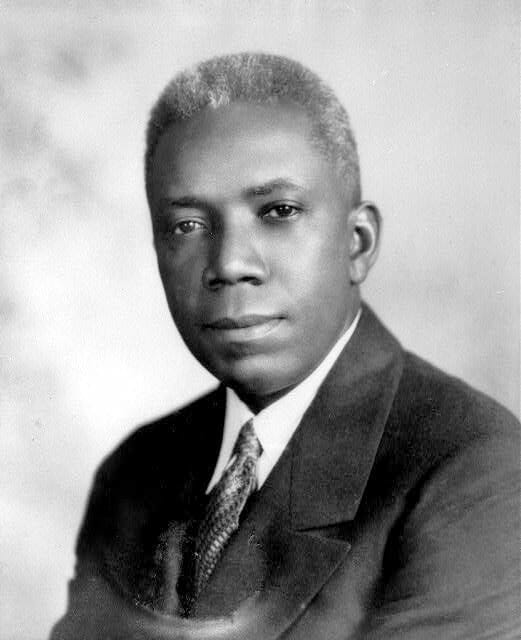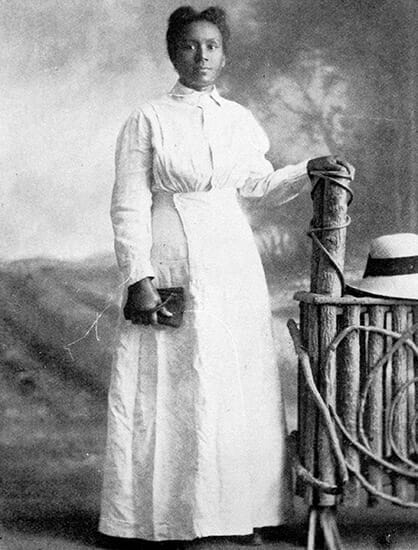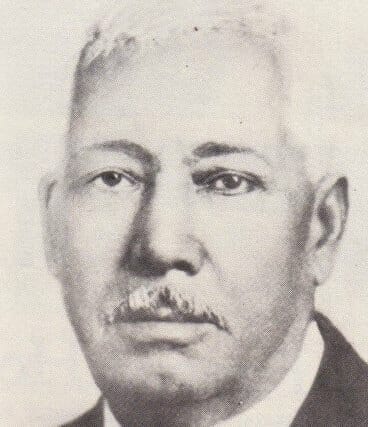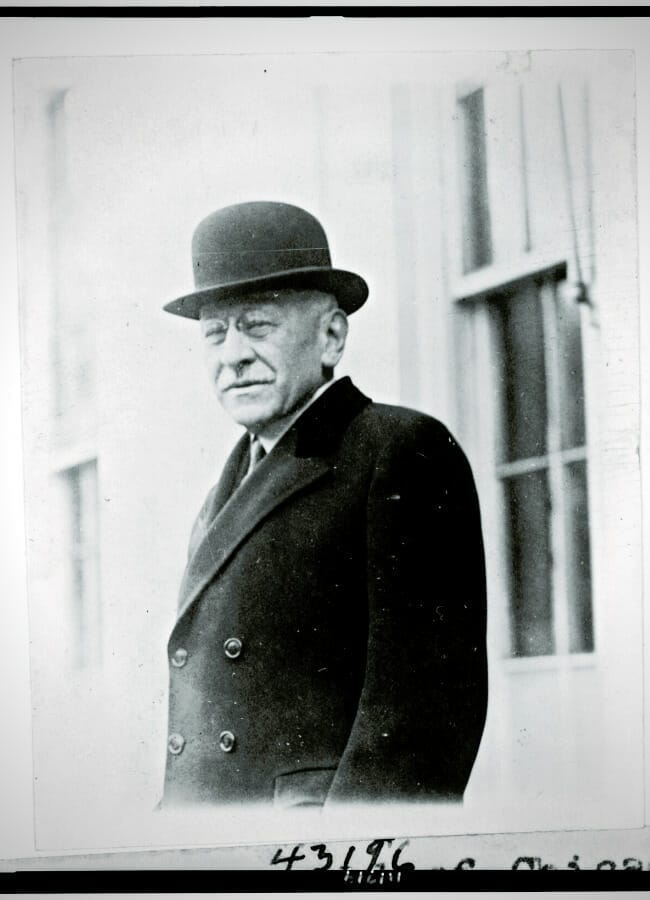

Uh oh...
It appears that you're using a severely outdated version of Safari on Windows. Many features won't work correctly, and functionality can't be guaranteed. Please try viewing this website in Edge, Mozilla, Chrome, or another modern browser. Sorry for any inconvenience this may have caused!
Read More about this safari issue.

As we continue to celebrate Black History Month and explore its significance as part of Arkansas history, it’s important to consider early educational milestones for African Americans in the state. A handful of committed individuals, Black and white, knew the way to change the fate of a generation and nation was education. So today we celebrate 6 Arkansas leaders in black education.

John Williamson | Washington
Haygood Seminary, organized by former slave John Williamson, was established near Washington, Arkansas, in 1883. As one of the first five schools by the Colored Methodist Episcopal denomination, it focused on preparing teachers and preachers to educate other African Americans following the Civil War. In the 1890s, the school grew to include lower elementary grades and became a “prominent educational center for African Americans in the region.” Later, the school was moved to Moten, near Pine Bluff and changed to the Arkansas-Haygood Industrial College.

Used with permission from the Arkansas State Archives
Floyd Brown | Brinkley
In the early 1900s, Arkansas was not distributing funds for segregated schools. With $2.85 in his pocket, Floyd Brown came to Brinkley to change the opportunities for Black youth in the Delta. Determined, he and his wife, Lillian, and a handful of teachers, taught at the private, residential school from 1920 to 1949. Their goal was to “train for the head, hands, and heart” in a time when Black children usually had five or fewer years of formal education. They were committed to the privately owned, nondenominational, coeducational Fargo Agricultural School.

Photo used with permission from the Arkansas State Archives
Eliza Ann Miller | Helena
Eliza Ann Miller was the first woman to own and operate a movie theater in Arkansas. She became involved with the Helena school system, providing leadership and insight, and later purchasing land to build a high school. Eliza and her husband, Abraham, both served on the board of trustees for Arkansas Baptist College. In the 1920s, Miller purchased the land on the former Sacred Heart Academy site and donated the land to the local school district. In 1926, the Eliza Miller High School was the first African American school in that region and carried a lasting reputation going against segregated schools in the South.

Henry Clay Yerger | Hope
Considered an American pioneer of Black education, Henry Clay Yerger took over the Hope Colored School in 1886. Later, the school site moved across town and became known as the Shover Street Elementary School, a two-room schoolhouse with two teachers. Over three decades, the school grew in number and space. Students attended through the 11th grade at one of the only high schools in the Southern part of the state. With continued support from the Jeanes, Smith-Hughes and Rosenwald funds, all established to benefit education, the school built a dormitory with space for out-of-town teachers. As the “first training school for Negroes west of the Mississippi,” students traveled there to learn, and over time the school continued to expand and add permanent buildings.

Dr. Tandy Washington Coggs
Dr. Tandy Washington Coggs was an educator and administrator. He was raised by his parents, also educators, who were the children of formerly enslaved people.
Dr. Coggs earned his high school diploma through Arkansas Baptist College and stayed to complete his bachelor’s degree. He earned post-secondary degrees at Hampton Institute and Tuskegee Institute, studying under Booker T. Washington. As the new director of the trades and industry program, Dr. Coggs taught at Arkansas Baptist College as a carpentry instructor and later moved to Branch Normal College in Pine Bluff. But Coggs’ most significant work in educating Black people came in 1928 as the first Black superintendent of the Negro Boys Industrial School at Pine Bluff.
Coggs established the school for young Black males in prison with adult criminals. Later, Coggs’ leadership earned him the role of President of Arkansas Baptist College. The college experienced record growth and its first accreditation during his tenure.
His son, Granville Coleridge Coggs, is widely known as one of the original Tuskegee Airman.

Photo of Julius Rosenwald used with permission under free commons, Library of Congress
Julius Rosenwald | across the South
Julius Rosenwald is one of the most significant figures in Southern Black education. He used his wealth as a business owner to provide grants to build schools for African Americans across the South. While he never finished high school or attended college, Rosenwald built a business in the clothing industry. He invested in Sears, Roebuck and Company and eventually became its president and chairperson.
The autobiography of Booker T. Washington, “Up from Slavery,” made a substantial impact on him, and the two developed a friendship. Rosenwald maintained his commitment to many Jewish causes. But he also acquired his friend Washington’s commitment to rural education of Black people in America. The establishment of his Julius Rosenwald Fund benefited Black education more than any other philanthropic effort. State records indicate that the fund established 398 school buildings serving 45 counties in Arkansas.
Join the Conversation
Leave a Comment
4 responses to “6 Arkansas Leaders in Black Education”
 Leave a Reply
Leave a Reply
We do the work.
You check your email.
Sign up for our weekly e-news.
Get stories sent straight to your inbox!












 Leave a Reply
Leave a Reply
[…] 6 Arkansas Leaders in Black Education – the earliest days of formally educating blacks in Arkansas came at the work of a handful of determined individuals […]
Thank you for highlighting these significant individuals. There’s a book on the relationship between Rosenwald and Washington entitled “You Need a Schoolhouse” that’s a great read for anyone interested in this topic. https://www.youneedaschoolhouse.com/. A few other key African American Arkansans in Arkansas History can be found here: https://encyclopediaofarkansas.net/entries/arkansas-teachers-association-2168/, notably Joseph Carter Corbin, the only African American to serve as “Superintendent of Instruction” (Secretary of Education) for the State of Arkansas: https://encyclopediaofarkansas.net/entries/joseph-carter-corbin-1624/.
[…] Coggs’s dad, Tandy, was a historical leader in Arkansas education. We’ve shared earlier about his accomplishments as the first Superintendent at the Negro Boys […]
[…] 6 Arkansas Leaders in Black Education […]